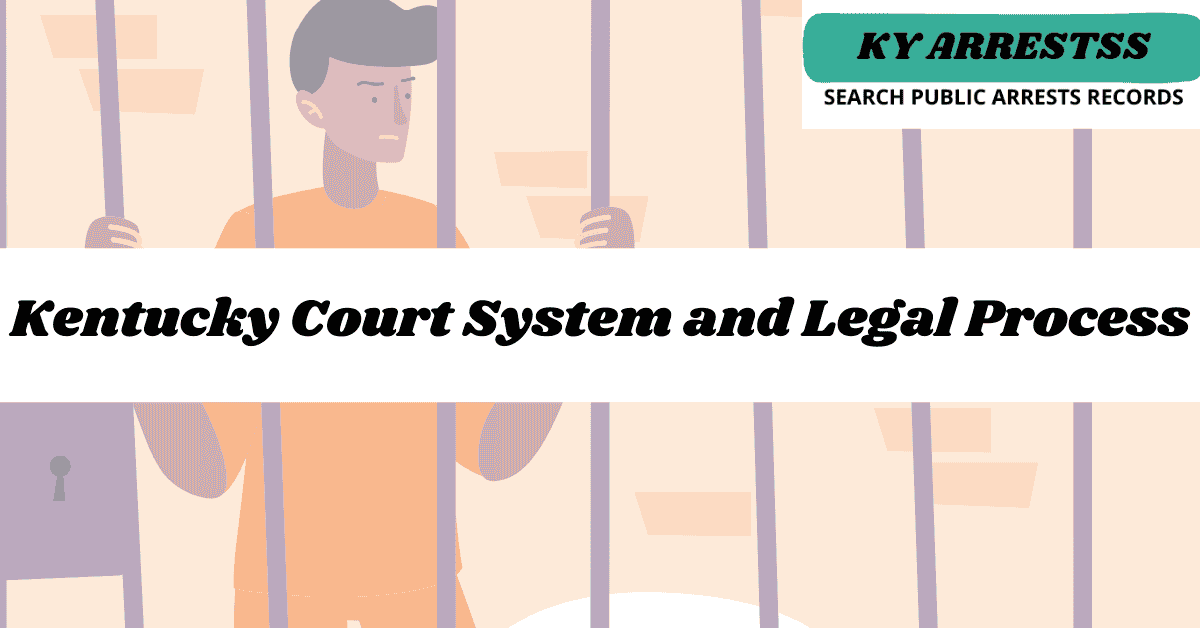Kentucky Court System and Legal Process
The legal system is a fundamental pillar of society, ensuring justice and upholding the rule of law. In the United States, each state has its own intricate court system responsible for administering justice and resolving disputes. In this article, we will delve into the intricacies of the Kentucky court system and explore the legal process within the state.
Structure of the Kentucky Court System
The Kentucky court system is structured into several levels, each with its own jurisdiction and responsibilities. At the lowest level are the District Courts, followed by Circuit Courts, the Kentucky Court of Appeals, and finally, the Kentucky Supreme Court.
District Courts
District Courts serve as the entry point for most legal matters in Kentucky. They have jurisdiction over minor criminal offenses, traffic violations, and civil cases involving smaller claims. District Courts are often the first step in the legal process for individuals seeking justice.
Circuit Courts
Circuit Courts handle more serious criminal cases, as well as complex civil litigation. They have jurisdiction over felony criminal offenses and civil cases involving larger claims. Circuit Courts play a crucial role in the legal process, ensuring that justice is served in a fair and impartial manner.
Kentucky Court of Appeals
The Kentucky Court of Appeals serves as an intermediate appellate court, reviewing decisions from lower courts. Its primary function is to ensure that legal proceedings have been conducted fairly and in accordance with the law. Appeals to the Court of Appeals provide an opportunity for parties dissatisfied with lower court decisions to seek redress.
Kentucky Supreme Court
As the highest court in the state, the Kentucky Supreme Court has the final say on matters of state law. It reviews decisions from lower courts and has the authority to interpret the state constitution. The Supreme Court plays a crucial role in shaping the legal landscape of Kentucky.
Legal Process in Kentucky
The legal process in Kentucky follows a set of prescribed steps designed to ensure fairness and due process. From filing a lawsuit to the resolution of a case, each stage plays a vital role in the administration of justice.
Filing a Lawsuit in Kentucky
Initiating a lawsuit in Kentucky involves a series of steps, including filing a complaint, serving the defendant, and participating in pre-trial procedures. Legal representation is often crucial in navigating the complexities of the legal system.
Court Proceedings
Court proceedings in Kentucky adhere to strict rules and procedures. From pre-trial motions to the presentation of evidence at trial, each stage requires careful preparation and adherence to legal standards.
Appeals Process
Individuals dissatisfied with lower court decisions have the right to appeal to higher courts. The appeals process allows for a review of legal errors and ensures that justice is served according to the law.
Alternative Dispute Resolution
In addition to traditional litigation, Kentucky offers alternative dispute resolution mechanisms such as mediation and arbitration. These methods provide parties with an opportunity to resolve disputes outside of the courtroom, often resulting in quicker and more cost-effective solutions.
Importance of Legal Representation
Legal representation is essential in navigating the complexities of the legal system. Attorneys play a crucial role in advocating for their clients’ rights and ensuring that their interests are protected throughout the legal process.
Key Legal Terms and Concepts
Understanding legal terminology is essential for anyone involved in legal proceedings. From “plaintiff” to “defendant” and “judgment” to “appeal,” familiarity with key legal terms can facilitate communication and comprehension.
Challenges and Reform Efforts
Like any system, the Kentucky court system faces challenges that require ongoing attention and reform. Efforts to improve efficiency, accessibility, and fairness are essential in ensuring that the legal system serves the needs of all citizens.
FAQs
What is the Kentucky Court System?
The Kentucky Court System serves as the cornerstone of justice within the state, tasked with interpreting laws, settling conflicts, and ensuring fairness. Comprising a diverse array of courts specialized in different areas of law, it plays a pivotal role in upholding the rule of law and safeguarding the rights of all citizens.
What are the different types of courts in the Kentucky Court System?
Within the Kentucky Court System, a structured hierarchy of judicial entities ensures the fair and efficient administration of justice. This includes the apex Kentucky Supreme Court, followed by the Court of Appeals, Circuit Court, District Court, and Family Court, each endowed with distinct jurisdictions tailored to address varied legal matters.
What is the role of the Kentucky Supreme Court?
Kentucky Supreme Court holds the utmost authority in the state’s legal system. It oversees lower court decisions, ensuring consistency and fairness in judicial rulings. Beyond its review function, the court interprets the state constitution, sets legal standards, and manages the judiciary’s operations, contributing significantly to the state’s legal framework and governance.
What types of cases are heard in the Circuit Court?
The Circuit Court serves as a pivotal trial court, presiding over a wide array of legal matters encompassing both civil and criminal cases. With its jurisdiction extending to significant civil disputes, felony criminal proceedings, and specific family law issues, it holds substantial sway in the legal landscape. Furthermore, the Circuit Court serves as a crucial appellate body, reviewing decisions from the District Court, thus ensuring judicial consistency and fairness.
What is the function of the District Court?
Operating as a foundational tier within the judicial system, the District Court bears responsibility for a diverse caseload spanning traffic infractions, misdemeanors, small claims, and initial proceedings for felony charges. Its purview extends to civil disputes within a defined monetary threshold, providing accessible justice for a broad spectrum of legal matters within its jurisdiction.
Conclusion
Accessing arrest records in the Kentucky Court System can be a straightforward process if you follow these step-by-step instructions. It is important to remember that arrest records are considered public records, but there may be restrictions on accessing certain confidential information. Always respect privacy rights and use the obtained records responsibly.







